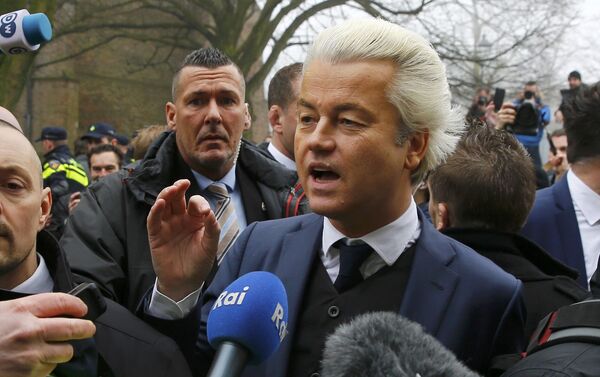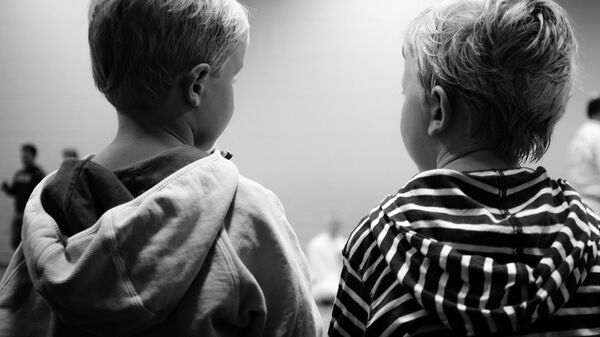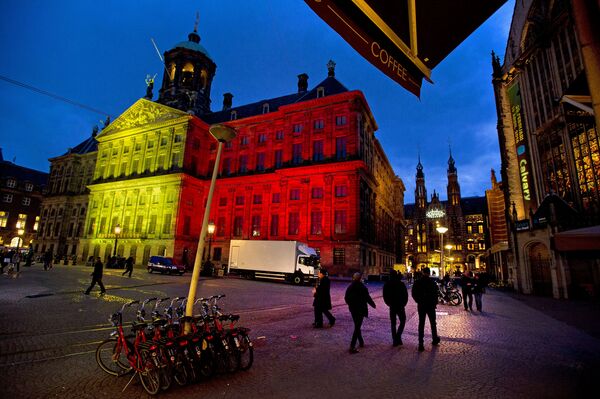Last year Amsterdam City Council earmarked US$12 million (11 million euros) to enable the children of the poorest families to take part in extra-curricular activities that they otherwise could not afford.
Most of the money went on music, ballet and sport lessons or on extra tuition to help youngsters with homework. But it has emerged that US$341,000 (312,000 euros) was spent on religious lessons, mostly by Muslim families. The fund — known as the Scholierenvergoeding — was supposed to help the city's poor better integrate into secular Dutch society and the council reacted immediately when it learned the money was being spent on religious classes.
Alderman Arjan Vliegenthart, who is responsible for Employment, Income and Participation, said 2,500 families had submitted invoices for religious classes. City councillors have voted to have the payments suspended and officials are looking into the claims. There is no suggestion there was any fraud involved, as some imams and Islamic scholars charge for teaching children about the Koran.
Mr. Vliegenthart said there was no question that the city "is not financing jihadis" but he said there was never any intention to include religious classes as they do not improve the children's ability to compete in Dutch society or obtain jobs.
Marjolijn van Goethem, a spokeswoman for Amsterdam City Council, told Sputnik, said the information emerged after two councilors, the VVD's Marianne Poot and Erik Flentge, of the Socialist Party (SP), submitted questions.
"As far as the VVD and SP are concerned, poverty resources such as school fees only serve a single purpose: ensuring that people can quickly and structurally suffer poverty," Poot and Flentge said in their report.
The most common organizations who were being paid for religious classes were the Arrabit Al Islam Mosque, the Al Kabir Mosque, the Al Karama Mosque, the Al Ummah Mosque, the Islamic Center Amsterdam-West Foundation and the Milli Gorus Foundation. The Netherlands has a population of around 17 million, of which around a million are Muslims, mainly from Morocco, Turkey and Indonesia.
In recent years, tensions have grown between immigrants and the indigenous population, who have a reputation for tolerance and liberalism. Pim Fortuyn, a right-wing politician who had been making inroads into Dutch politics with his xenopobic rhetoric, was assassinated in 2002. The assassin, Volker van der Graaf, told the trial he had become alarmed that Fortuyn was using Muslims and immigrants as scapegoats. Van der Graaf, an animal rights activist, was jailed for 18 years but was released in 2014.
In 2004 Theo Van Gogh, a Dutch filmmaker who had made a controversial short film about Muslims' treatment of women, was murdered by an Islamist extremist, Mohammed Bouyeri.Fortuyn's party eventually dissolved, but his ideas were adopted by Geert Wilders, whose Party for Freedom (PVV) attempted to capitalize on a series of incidents which it suggested showed the Dutch Christian culture was in danger of being overwhelmed by Islam.

The Dutch national curriculum says children have to "learn the main points about the religions which play a big role in the multicultural Dutch society". But in July last year, angry parents criticized officials after discovering a video of the children at their Catholic primary school visiting a mosque in Rotterdam and being forced to don Islamic headgear. At a rally in 2014 Wilders asked his supporters at a rally if they wanted "fewer or more Moroccans in your city and in the Netherlands?" Wilders was convicted of inciting discrimination but it did not stop him and he described Moroccan migrants as "scum."
But in March this year, his party failed to make the impact it had anticipated in the Dutch general election. The Dutch prime minister, Mark Rutte, said voters had rejected the "wrong kind of populism". But Mr. Wilders called his comments "very worrying, as if populists are semi-Nazis" and added ominously: "Rutte has not seen the back of me."



